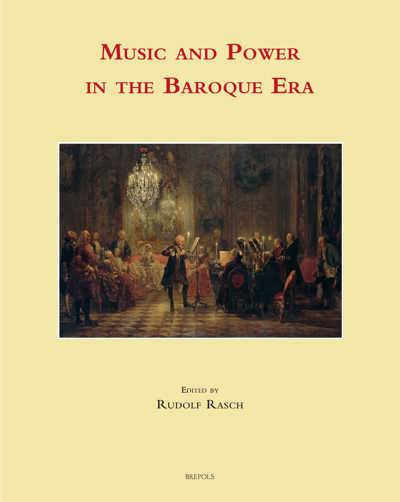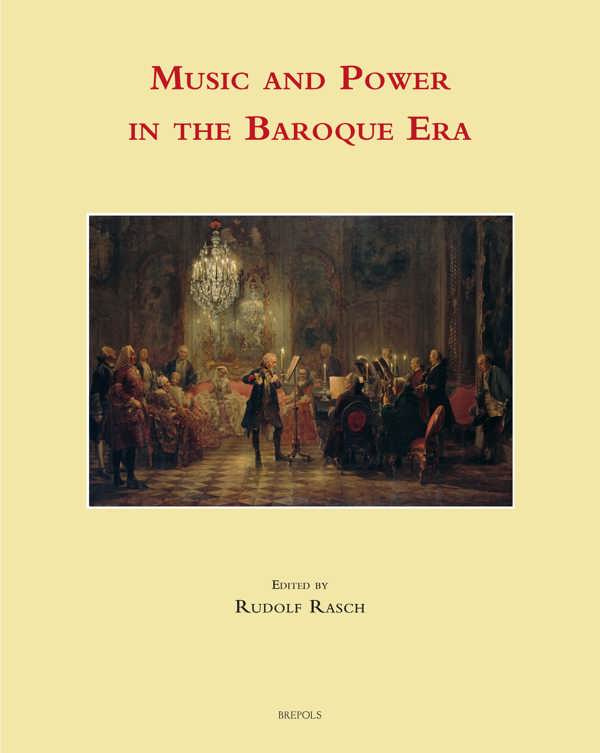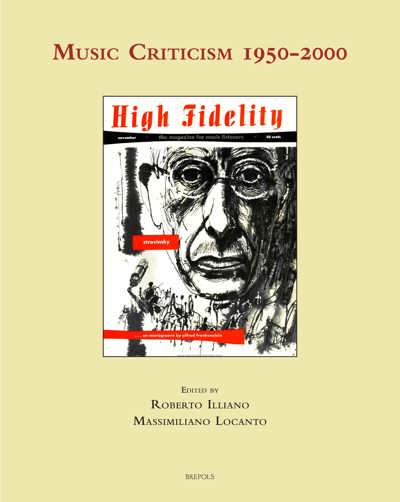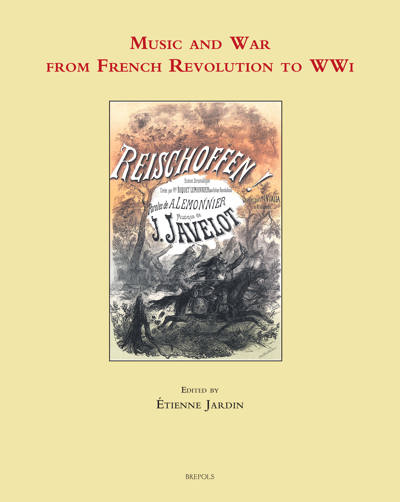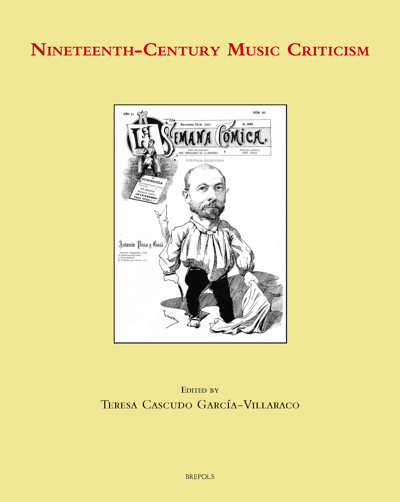
Music and Power in the Baroque Era
Rudolf Rasch (ed)
- Pages: xii + 463 p.
- Size:220 x 280 mm
- Illustrations:41 b/w
- Language(s):English, Italian
- Publication Year:2018
- € 125,00 EXCL. VAT RETAIL PRICE
- ISBN: 978-2-503-58071-5
- Hardback
- Available
This book focuses on the relationship between music and power in Baroque Era
"Insgesamt eröffnet der vorbildlich lektorierte Band mit seinen qualitativ hochwertigen Abbildungen und einem ansprechenden Satz ein breites Panorama derzeitiger Forschung zum 17. und 18. Jahrhundert, die sich um Kontexte und um kontextgebundene Verständnisebenen von Musik bemüht. Sein Verdienst liegt an erster Stelle in den quellenbasierten, neue Dokumente zutage fördernden Beiträgen sowie den methodenkritischen Anregungen." (Nastasia Sophie Tietze, in: Die Musikforschung, 72. Jahrgang 2019, Heft 4, S. 362)
Rudolf Rasch for many years taught theory and the history of music at the Department of Musicology of Utrecht University. Among his interests are tuning and temperament, the musical history of the Netherlands, the history of music printing and publishing, and the works of composers such as Corelli, Vivaldi, Geminiani and Boccherini. He is the General Editor of the Complete Edition of the works of Francesco Geminiani (Ut Orpheus Edizioni, Bologna).
Music always functions in a specific environment and, viewed from the other side, environments use music to confirm and strengthen their identities. Institutions of power have in all times employed music to present themselves to the outside world, alongside other means such as architecture, fine arts, design and fashion. The present volume brings together a number of studies that all deal, in one way or another, with the question of how power was implemented in music in what is called the Baroque Era, roughly the seventeenth century and the first half of the eighteenth. The essays can be grouped under four main headings: court opera, ceremonial music, “musicians” and miscellaneous studies. Several essays discuss court opera, one of the most conspicuous musical forms with which a monarch could display his power. Music could also accompany festivities and ceremonies of all sorts, of very different kinds of institutions, courtly, civil or ecclesiastical. Not only sovereign rulers could employ music to confirm their power, also lower-ranking powers such as nobility often invested in music in order to gain prestige. Various studies highlight this aspect of “music and power”. Finally, there are studies that deal with more general questions, such as the representation of power in Baroque opera, dedications of musical works to royals and other patrons, and the social status of musicians as they are positioned between patrons and public.
Rudolf Rasch
Preface
Opera
Reinhard Strohm Emblems and Problems of Rulership in Early Modern Opera
Adriana De Feo I libretti encomiastici di Giovanni Andrea Moniglia: dalle corti di Firenze e Vienna ai teatri veneziani
Michael Klaper «La più bella festa, che in teatro serrato, si sia veduta in Firenze»: Francesco Cavalli compone per la corte medicea
Olga Jesurum I soggiorni romani di Francesco Galli Bibiena
Richard Erkens Accounting for Opera: Financing Theatre Seasons on Roman Stages in the 1720s
Diana Blichmann The Stuart-Sobieska Opera Patronage in Rome: Political Propaganda in the Teatro Alibert (1720-1823)
Anna Giust Dalla corte al teatro: l’opera italiana in Russia al tempo di Elisabetta Petrovna (1741-1762) (con uno sguardo al regno di Caterina ii)
Ceremonies
Alexander Robinson Music and Politics in the Entry of Maria de’ Medici into Avignon (19 November, 1600)
Simone Ciolfi Music and Splendour in Roman Graduation Ceremonies
Robert G. Rawson Suffering and Supplication as Emblems of Power in Music Relating to the 1683 Ottoman Siege of Vienna
Chiara Pelliccia Le cantate natalizie per il Palazzo Apostolico fra tradizione musicale e politiche pontificie: uno sguardo ai topoi della pace
Angela Fiore Musica, potere e devozione: le celebrazioni del Corpus Domini a Napoli fra xvii e xviii secolo
Alessandra Palidda «Rediviva sub optimo principe hilaritas publica»: Music, Consensus and Celebration in Habsburg Milan
Nobility
Naomi Matsumoto Pio Enea degli Obizzi (1592-1674): Power and Authorship
Jana Franková Wenzel Anton von Kaunitz-Rietberg and His Grand Tour: Inspiration for His Future Musical Patronage?
Musicians
Bruce P. Gleason Mounted Cavalry and Court Kettledrummers and Trumpeters 1600-1750
Benedetta Saglietti Il potere della parola: le prime autobiografie di musicisti germanofoni nella Grundlage einer Ehren-Pforte di Johann Mattheson (1740)
Valentina Anzani In the Service of Elector Palatine Johann Wilhelm (1690-1716): Castrati as Secret Agents and a Controversial Case of Diplomatic Immunity
Guido Viverit Giuseppe Tartini e l’aristocrazia: la formazone dei violinisti per le corti europee e per i mecenati privati
Rudolf Rasch Composers, Patrons and Dedications: From Arcangelo Corelli to Pietro Antonio Locatelli
Abstracts
Biographies
Index of Names
